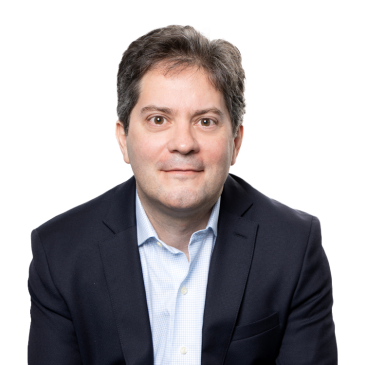
Mask Crusaders – Navigating Rampant False Marking, Counterfeiting and Fraud in the Medical Protective Equipment Marketplace (COVID-19)

There is currently a significant shortage of personal protective equipment (“PPE”) for hospitals and consumers. Diagnostic test components and ventilators are also in short supply. Buyers need to move quickly to acquire this equipment, but there is also a heightened need for vigilance due to sellers engaging in false marking of certifications, counterfeiting and fraud. IP owners also need to be prepared to enforce against infringers and counterfeits.
This article will focus on masks as one example of concern. A similar risk applies to all other PPE and medical devices, because there is no item that can’t potentially be falsely marked, counterfeited or dangled as bait in a fraud scheme. Even COVID-19 diagnostic kits have been counterfeited.
Masks and face shields for healthcare workers have been in short supply. This is partly because hospital-grade masks and face shields are approved medical devices. They must be tested and certified, so textile manufacturers can’t simply retool and instantly start making masks.
False marking with certifications / poor quality
All types of hospital-grade masks have a certification. We will use N95 respirators as an example for discussion. N95 respirators are in particular need because they are a type of mask that filters virus better than surgical masks. The typical North American N95 certification is provided by an arm of the US Centers for Disease Control (“CDC”) called the National Institute for Occupational Safety and Health (“NIOSH”). An applicant for NIOSH certification must provide its own experimental data, which among other things, has to show that at least 95% of sodium chloride particles are blocked in a test. The CDC will run its own experiments to verify safety and efficacy prior to issuing the certification.
Even prior to the shortage of N95 masks, the CDC was warning of false marking of N95 masks1. Now the problem has exploded, as unscrupulous manufacturers look to profit off hospitals and consumers desperate for masks2. The Government of Canada has also just issued a safety alert, warning about fraudulent N95 respirators that do not meet the requirements for NIOSH certification or protect against COVID-19.
Many Canadian healthcare institutions can rely on their trusted suppliers provide quality masks, but not to fully meet the current and immediate mask demand. To resolve the mask shortage, institutions have often had to wade deep into the international marketplace to look for new suppliers. Significant due diligence is required due to the risk of low quality and false marking of masks with certifications. Large buyers are trying to mitigate risk by looking past suppliers and distributors, to determine the factory source of the product. For a significant healthcare institution order, where possible, trusted feet on the ground should verify the factory and samples.
Healthcare institutions are typically avoiding purchasing from new, small online sellers. Online sales platforms have introduced various measures to address quality and price gouging concerns for coronavirus-related products, such as face masks, and are pulling listings for counterfeit items. eBay has introduced a blanket ban on sales of face masks, hand sanitizer, and disinfecting wipes in the US, while Google and Facebook have banned ads for face masks. The effectiveness of these bans has, however, been questioned as users and media outlets continue to report seeing listings and ads for these items3. Amazon has taken a different approach and restricted sales of apparently legitimate COVID-19 supplies in the US to hospitals and government organizations only, through a new section of their website.
Counterfeiting
Counterfeiting is not just a risk from small online sellers. In one example, counterfeit masks were sold to a hospital in New Jersey by a trusted, long-time supplier. Even safety equipment suppliers have unknowingly offered counterfeit items for sale.
3M has established a hotline which provides information on how to identify authentic 3M products, and are encouraging consumers to report fraudulent activity, price gouging, and counterfeits4. Trademark enforcement issues for brand owners are discussed in more detail below.
Fraud
The sharks in the water are not limited to false marking and counterfeiting. In at least one case in the US, a union came close to being defrauded when trying to procure PPE. The fraud was inadvertently uncovered after the union put out a press release publicizing the “good news” that it had identified a source for over 30 million masks. It turned out that this was an attempted fraud because the masks did not exist. This has prompted mask manufacturers to warn consumers against scams, some of which have involved fake email addresses and websites.
Trademark Enforcement – a Deeper Dive
Counterfeit products also raise important trademark protection issues for legitimate mask manufacturers, because the manufacturer’s trademark is often reproduced, in whole or in part, on the counterfeit item. Other products may use confusingly similar brands and packaging. Trademarks are important identifiers of the source of a product, and can carry significant value – particularly when associated with considerable goodwill (e.g., when a manufacturer has an outstanding reputation for high quality products).
In the US, 3M recently filed a lawsuit against a supplier, Performance Supply, who falsely claimed to be an authorized 3M supplier. Performance Supply offered USD $45 million in N95 respirators for sale to New York City officials at mark ups of up to 600% above the list price. The lawsuit alleged, among other things, trademark infringement.
In Canada, unauthorized use of a confusingly similar trademark can constitute trademark infringement, passing off and depreciation of goodwill contrary to the Trademarks Act. Enforcing these claims is done through a proceeding in the Federal Court of Canada or superior court of a province. The Trademarks Act also contains specific provisions aimed at curbing commercial activity in counterfeit trademarked goods. For example, it is an offence to distribute, sell, manufacture or import goods bearing a mark that is “identical to, or cannot be distinguished in its essential aspects from, a trademark registered for such goods”5. Trademark owners are encouraged to consult an experienced IP professional regarding how to effectively enforce and protect their trademark rights when dealing with counterfeits or other forms of unauthorized trademark use.
Just as hospitals need to be aggressive in their PPE due diligence, trademark owners also need to be vigilant in enforcing against infringers. Trademark owners must enforce IP to defend their business, IP and goodwill, which will also keep consumers protected against harm.
https://www.cdc.gov/niosh/npptl/topics/respirators/disp_part/respsource1quest2.html#fig4.
The National Park Service has also issued a Safety Alert on Counterfeit N95 Masks, with the following description of how a counterfeit product may be presented. The full alert is accessible at https://www.nps.gov/articles/safety-alert-counterfeit-n95-masks.htm.
Vendors will provide a product description and accompanying image of the “NIOSH approved” N95 face filtering respirator claiming it meets OSHA requirements. The N95 image will likely include some form of approval stamp on the mask. The TC approval number on the image often does not match the one listed in the product data OR it links to another manufacturer. Many of the counterfeit manufacturers have a minimum order size of 10,000 masks and prices may fluctuate daily. All Manufacturers should be able to provide a NIOSH Approval Label.
https://www.cnn.com/2020/03/19/tech/facebook-coronavirus-mask-ads/index.html;
https://www.businessinsider.com/face-masks-ads-being-served-by-google-after-ban-2020-3; and
https://www.wired.com/story/amazon-sellers-hijack-listings-face-masks-coronavirus/.



